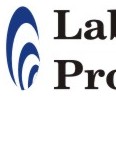 |
 |
 |
 |
 |
|
 |
 |
 |
 |
 |
|
 |
 |
 |
 |
 |
|
 |
 |
 |
 |
 |
|
 |
 |
 |
 |
 |
|
INSOLVENCY & LIQUIDATION OF EMPLOYER There was a need to protect the rights of employee upon the sequestration or liquidation of their employer. The termination of contracts of employment for the above reason meant that employees were not considered as dismissed and therefore they did not receive any protection or benefits the law offered e.g. severance pay in terms of the Basic Conditions of Employment Act or the right not to be unfairly dismissed in terms of the Labour Relations Act. The amendment to Section 38 of the Insolvency Act applies to the insolvency of individual employers who trade in their personal capacity and to companies and close corporations wound up due to insolvency. NOTE: A trustee handles the insolvent estate of a person, whilst a liquidator administers the liquidation of a legal person e.g.company
The effect of the Amendments
Consultation The trustee / liquidator may not terminate contracts of service unless he has consulted with:
Consultation means that the parties must seek to reach consensus on appropriate means and ways to save the whole business or part of it by the sale of whole or part of it; or transferring it as a going concern in terms of section 197A of the Labour Relations Act; or by a scheme or compromise in terms of section 311 of the Companies Act; or by any other manner. Parties wanting to make proposals must do so in writing within 21 days of the appointment of the trustee / liquidator, unless otherwise agreed. A creditor may participate in such consultations with the consent of the trustee / liquidator.
Termination of Contracts of Service If the trustee / liquidator has not already terminated the services of employees, the contracts will automatically terminate after 45 days of the trustee / liquidator having been appointed.
Severance Pay An employee whose services have been terminated in this manner is entitled to claim severance benefits as if they were dismissed for operational reasons, from the employer's insolvent / liquidated estate in terms of section 41 of the Basic Conditions of Employment Act. NOTE: If the employer is in provisional liquidation, the employee may refer the matter to the CCMA, joining the trustee or provisional liquidator in the process. The CCMA has no jurisdiction to consider the validity of an order of insolvency or liquidation (provisional or final). Where a final liquidation order is granted, the employee must lodge a claim with the trustee / liquidator. Any claim brought by an employee at the CCMA would end upon the granting of a final liquidation order. Therefore the employee only has a claim against the insolvent estate, and the employee must lodge such a claim with the trustees or liquidators.
Transfer of Contracts in terms of Section 197A of the Labour Relations Act This applies to transfer of business where the old employer is insolvent and a scheme of arrangement or compromise has been entered into to avoid the winding up or sequestrating the employer for reasons of insolvency. If a transfer of business takes place between an old employer and a new employer in the circumstances above, the new employer is:
The new employer will comply with its obligations in terms of s197A if the new employer employs transferred employees on terms and conditions that are equal to or better than the terms and conditions on which they were employed by the old employer. However, if the terms and conditions are determined by a collective agreement, this will continue to apply. S197A also does not prevent an employee from being transferred to a pension, provident, retirement or similar fund other than the fund to which the employee belonged prior to the transfer.
Can the Matter be Referred to the CCMA?
Insolvency / Liquidation: The CCMA has no jurisdiction to consider the validity of an order of insolvency or liquidation (provisional or final) issued by the High Court. The employee's recourse is to lodge a claim with the liquidators / trustees. Any claim brought by an employee to the CCMA would end upon the company or close corporation's final liquidation.
Transfer: Unfair Labour Practice disputes relating to the transfer of employment can be referred to the CCMA or Council for concilliation or to con-arb, it the parties agree to the con-arb process. If concilliation fails, the matter may proceed to arbitration or on a con-arb basis.
Transfer: A Dismissal in terms of a transfer as contemplated by section 197 or 197A is an automatically unfair dismissal, which must be referred to the CCMA or council for conciliation. If conciliation fails, the matter must be referred to the Labour Court. Information provided on this page is based on the document “Insolveny & Transfers in terms of Section 197A" found on the CCMA's website. >> Labour Law >> useful links >> advice >> UIF payments >> UIF benefits |
|
|National Assistance: 0860 LABOUR/ 0860 522687
|
||||
| To join... | ||||
| (the Membership Fee is only R85pm): | ||||
|
||||